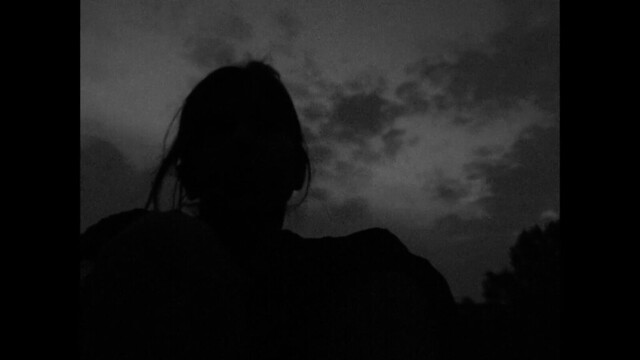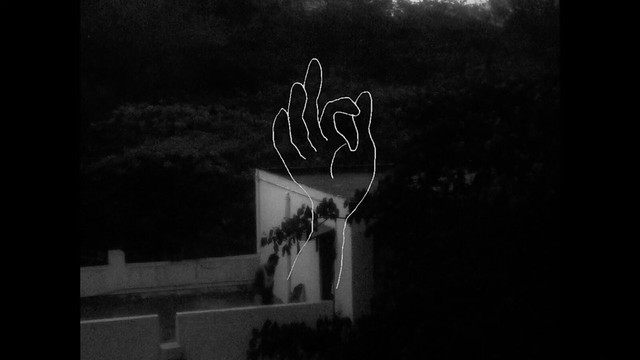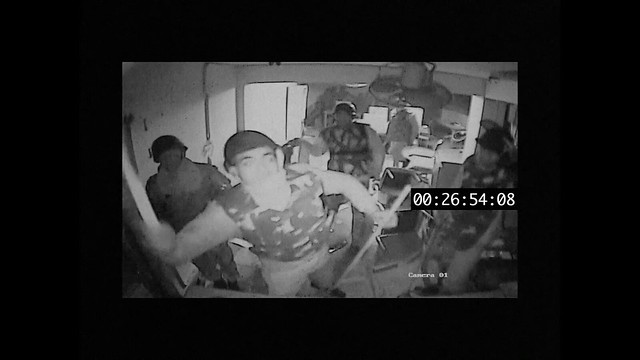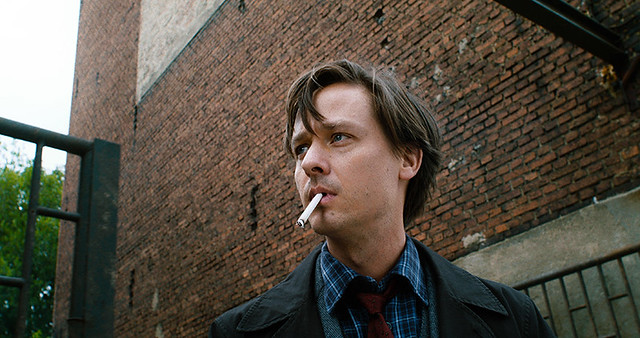





 Payal Kapadia's debut film, A Night of Knowing Nothing is a tapestry of grainy 16mm, archival and surveillance cam footage, beautifully capturing the spirit of youth and their undying idealism in chaotic, uncertain times we live in.
Payal Kapadia's debut film, A Night of Knowing Nothing is a tapestry of grainy 16mm, archival and surveillance cam footage, beautifully capturing the spirit of youth and their undying idealism in chaotic, uncertain times we live in.
A woman reading wistful letters written by L, a lovelorn student at The Film and Television Institute of India, narrates the film. Her belongings were found in the dormitory where she stayed as a student. These letters, addressed to her boyfriend who is no longer in school, were written on a notebook and never sent. From that, we gather that her love is not reciprocated because of India's rigid caste system: his parents don't approve of their relationship and have taken him away. Kapadia and her team use her letters as a springboard for an essayistic examination of contemporary India.
A Night of Knowing Nothing starts and ends with black and white footage of young people dancing. These silent images of undeterminable time period, is joyous, energetic, and emblematic of college life. They are dancing in front of a movie projected on a big screen. Cinema or visual image here is already tied to the past, invoking nostalgia. There are images of young people in their rooms- some laying in bed half naked, some watching Godard's Breathless on a small TV.
There are empty darkened alleys and billowing curtains, sound of rain and birds chirping accompany these images. Then there's a home movie shot in color, of a wedding, which seems like from the 70s. (judging by their clothes)
As L writes to her lover about their mutual friends, we get the glimpse of 2015 strike at the FTII, a public college, protesting the appointment of a Hindu Nationalist actor to the chair by the right-wing Modi Government. Their strike spreads to college campuses across India, protesting not only the government's assault on public education system but also the violent crackdown of the minority Muslim population. The footage of protests and sloganeering is cheerful at times. But the baton wielding police in the streets and the surveillance footage of masked right-wing militia thugs breaking down the barricaded doors of a university building full of students and corralling them and beating them mercilessly are truly terrifying.
These issues are explained with the voices of newscasters and leaders of the demonstrators with or without visuals, always shot on grainy film. The mood and energy is same as that of May 1968, when universities across Europe exploded in protest against the governments and its policies and war in Vietnam. And just like back then, students question if their movement could be truly successful without the support of the country's working class. This is especially true with a country like India where the deep-rooted social tradition of the caste system make things a lot more complex and difficult. Justice for Dalit (the lowest in the caste system) become the theme of the protests. And L's love affair with a boy from another caste comes up again, tying the narrative threads.
As the film plays out, L in her later letters, isn't sure if she was writing to her unresponsive lover or the ideal version of him, whom she can confide in her thoughts and feelings. Memories fade, but nostalgia remains. From Godard and May 68', Mythical Hindu God films, to Chris Marker, A Night of Knowing Nothing weaves intoxicating visual, textural contemplation of our relationship with cinema as an unintentional but nevertheless undeniably nostalgic medium, even if the image is from only few years ago. It ends in a hopeful tone. As one leader of the protesters addresses the crowds that it doesn't matter what came before them or what's handed down to them and no matter what today's circumstances are, the moment right now is theirs for them to seize it. Keep on dancing.
